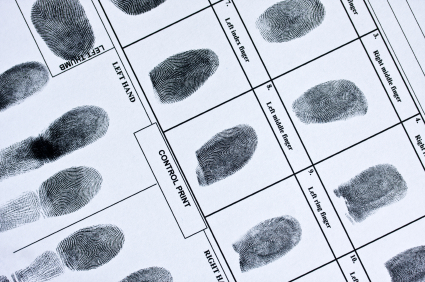

#FINGERPRINT BACKGROUND CHECK PROFESSIONAL#
Jobs in law enforcement, fire departments, or airportsįor example, Florida requires a fingerprint-based background check for state agencies and regulated industries.įingerprint background checks may also be necessary for professional licensing.Jobs in long-term care, senior centers, or other positions regulated by the Centers for Medicare & Medicaid Services (CMS).Jobs or volunteer positions at schools and daycare centers.Federal, state, or local government employment.Instead, individuals can use the information to review and, if necessary, correct their IAFIS records.ĭepending on federal, state, and local laws, as well as your industry’s regulations, you may need to conduct fingerprint background checks when hiring for: Individuals can request their personal IdHSC of records from IAFIS, but it cannot be used for employment purposes. Generally this request must be submitted to the applicable State Identification Bureau. These databases may be searched instead of, or in addition to, the FBI system as part of a fingerprint background check.Įmployers can also request an Identity History Summary Check (IdHSC) if authorized by state statute. In addition to the IAFIS, there are hundreds of smaller Automated Fingerprint Identification System (AFIS) databases on the state, city, and county level.

They may also have been collected for reasons unrelated to criminal law enforcement, such as when a person is naturalized as a citizen, serves in the military, or works for the federal government. Fingerprints in the IAFIS may have been collected in relation to an arrest. Typically, fingerprint-based record checks involve searching the FBI’s Integrated Automated Fingerprint Identification System (IAFIS), a nationwide computer database of fingerprints.

What Is a Fingerprint Background Check?Ī fingerprint background check uses a candidate’s fingerprints, in addition to other personal information such as their name and date of birth (DOB), to locate criminal history. Due to their limitations, employers should consider using these checks in combination with other sources of criminal records. But fingerprint background checks are not the gold standard. While 96% of employers conduct some type of background screening as part of the hiring process, criminal background checks are the most common type, used by more than two-thirds of organizations.Īs part of their criminal background screening, about one-third of companies include a fingerprint background check for some or all job candidates, the PBSA survey reports. Protecting employees and customers, enhancing the quality of hires, and safeguarding the company’s reputation are the primary reasons employers conduct background checks, according to a survey by the Professional Background Screening Association (PBSA). Learn the limitations of fingerprint background screenings and find out why a more complete criminal background check may help better protect your business. Fingerprint background checks may be required for certain positions within the federal government, state agencies, or regulated industries.


 0 kommentar(er)
0 kommentar(er)
